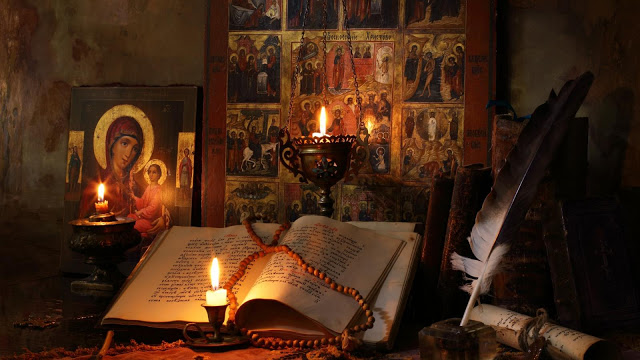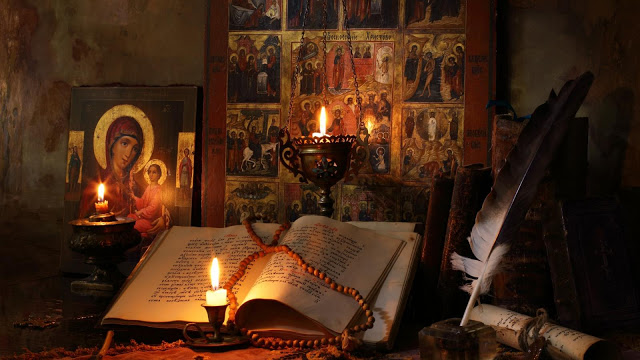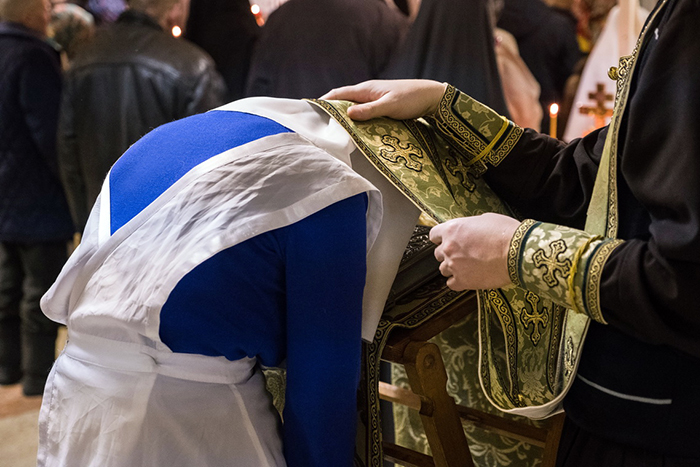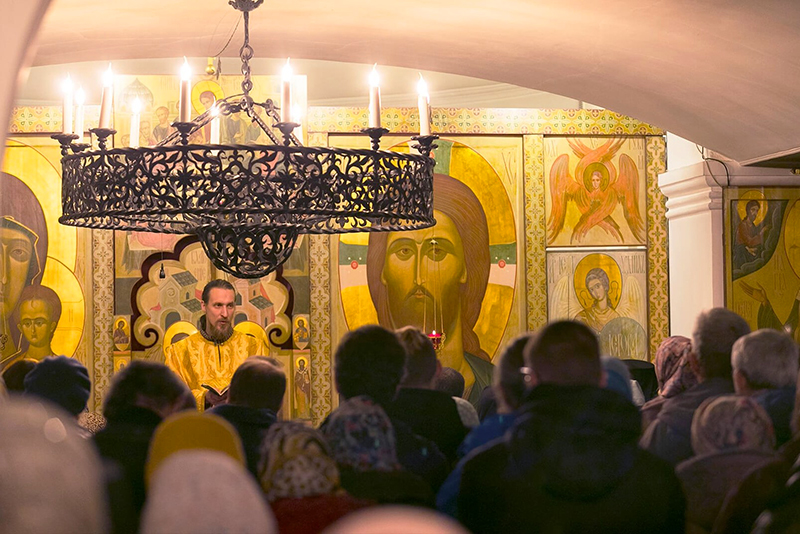
The normal Orthodox Christian—who is living according to the norms of the Orthodox faith—will be doing the following (this is not an exhaustive list, nor is this in order of priority):
1. Participating in church services as often as possible. Attendance at every Sunday morning liturgy is a minimal baseline for worship life—in most cases, it is not enough. And participation doesn’t just mean attendance, but engagement, whether silently and attentively, singing along, making the Sign of the Cross, etc.
2. Prayer at home every day. Ideally, at least morning and evening prayer, as well as prayer over meals. It is especially important for husbands and wives to pray together regularly and for parents to pray with their children. This will include reading Scripture, too, especially Scripture that is prayer, such as the Psalms.
3. Receiving the sacraments. This isn’t just communion and confession, but also holy unction (when sick), marriage (in the Church, not outside!), baptism and chrismation (for you and your children), and even considering whether you or one of the men of your family should think about ordination.
4. Avoiding immorality. What we do with our bodies, minds and words has an effect on our salvation. Use them for good, not for evil. Seek to serve rather than to be served.
5. Fasting according to church tradition. Your father-confessor will help to apply the fasting traditions of the Church for you and your family. We fast on most Wednesdays and Fridays, as well as during the four major fasting seasons (Great Lent, the Apostles Fast, the Dormition Fast and the Nativity Fast).
6. Confession. The sacrament of confession is critical to our repentance. We should go at least once during each of the four fasting seasons but also whenever there is a need, especially a sin that disrupts your peace.
7. Getting spiritual advice. This often happens in confession, but your father-confessor is there for you at other times, too. He’s a resource you should utilize frequently.
8. Tithing. Giving 10% of your income back to God (it is His gift to you!) is a Biblical standard that Orthodox Christians should embrace. If you’re not ready for 10% yet, choose another percentage and be disciplined about it, working toward 10%. If you’re able to give more than 10%, do so. Don’t “give until it hurts”—give until it feels good! Giving our money to God in worship (not because we need to meet a budget) is one part of what it means to give Him everything about ourselves so that it can be healed. (Is tithing Orthodox? Yes! It’s mentioned in the Fathers many times, but here’s the kicker–the Fathers usually say that Christians should exceed the tithe expected by the Old Covenant.)
9. Almsgiving. This is directly aiding someone in need. It might be monetary, but it also might be with your labor, your encouragement or even just your attitude.
10. Education. We seek a deeper understanding of our faith not only so that we can know what our piety means but so that we give even our minds to God for His healing and transformation. Our whole intellect should be engaged in Christ—whether through spiritual reading, classes or some other form of education. Knowing and understanding the Scripture should be at the top of our educational efforts.
11. Sharing the faith. If you’re grateful for the salvation God has given you, you will want to share it with others.
12. Going on pilgrimage. It’s a journey with a holy purpose. Common destinations include monasteries and important shrines.





I found that this is exactly the same as baptist beleifs
Tithing is NOT Orthodox. You are perhaps a converted former Protestant? I am not saying that giving to the church is not a good thing, the concept of the ‘tithe’ is not Orthodox. It is something started by The Brethren, a cult.
https://www.youtube.com/watch?v=x_ThEfIKl-U&t=1s
Please, do not turn Orthodoxy into Protestantism.
Thank you for this piece, Father. Tithing to the God (and also, the parish) is something that my parents emphasized to me from an early age. Without it, the church doors will close.